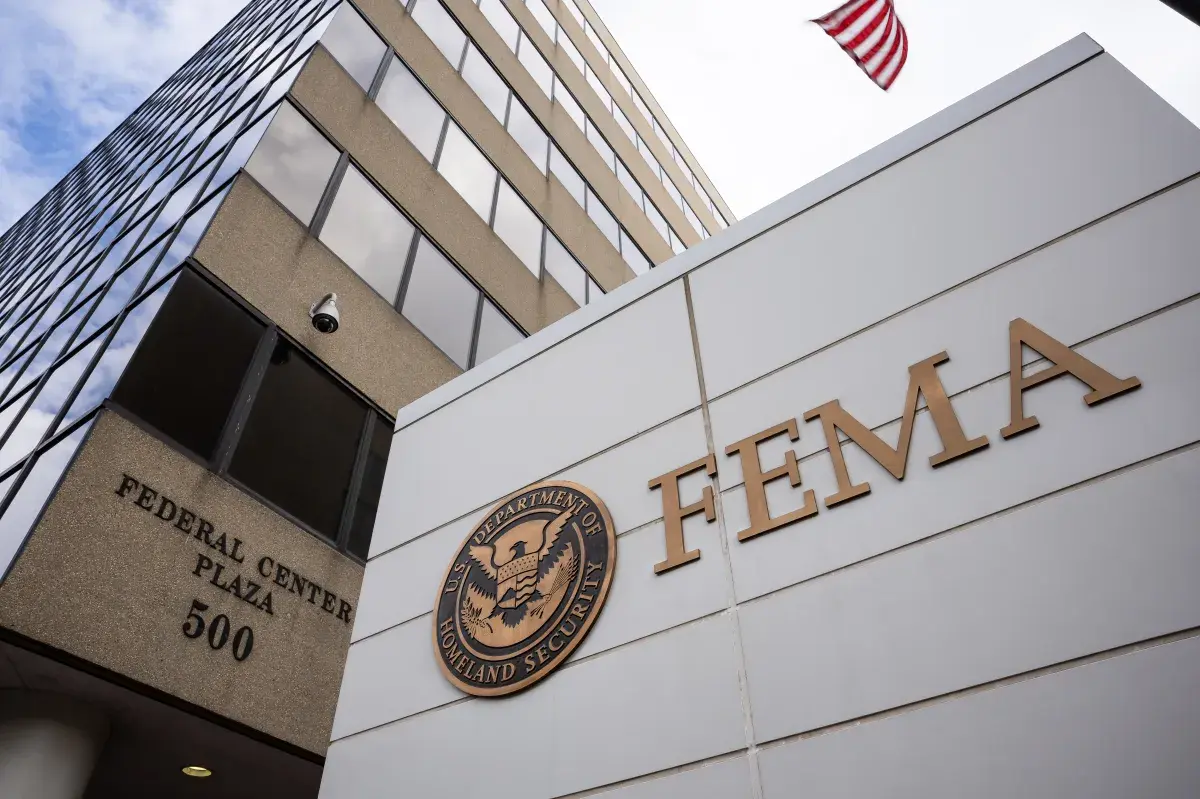
A federal judge in Rhode Island on Tuesday temporarily blocked the Trump administration from cutting $233 million in counterterrorism and emergency preparedness grants from a group of Democratic-led states.
The order came one day after those states sued the administration, alleging the funding shift was politically motivated and legally unsupported.
Newsweek contacted the Federal Emergency Management Agency (FEMA) for comment via email outside of normal business hours on Wednesday.
Why It Matters
At stake is far more than a budget dispute. The fight tests how much power a presidential administration has to reshape long-standing emergency preparedness funding and whether it can pressure states over unrelated policy disputes, such as immigration enforcement.
Billions in FEMA grants underpin critical counterterrorism and disaster response programs—from bomb squads in New York to statewide intelligence networks in Illinois—and abrupt, unexplained cuts could disrupt years of planning.
The outcome will help define the limits of executive discretion over funds Congress intended to be risk-based and politically neutral, with broad implications for federal-state relations and public safety.
What To Know
U.S. District Judge Mary S. McElroy—appointed to the bench in 2018 by President Donald Trump—issued a temporary restraining order (TRO) on September 30 preserving Homeland Security Grant Program (HSGP) funds for 12 states and the District of Columbia while litigation proceeds.
“This sort of last-minute changing of the way the funding happens, and especially when it happens right in the wake of Judge Smith’s decision, is concerning,” McElroy said from the bench.
The lawsuit follows a series of high-profile disputes over how the Department of Homeland Security (DHS) and its subagency FEMA distribute homeland security grants.
Just five days earlier, another Rhode Island-based federal judge, William E. Smith, ruled that new immigration-related conditions DHS had attached to disaster and preparedness grants were unlawful.
Smith found the conditions “arbitrary and capricious” under the Administrative Procedure Act and unconstitutional under the Spending Clause.
States Say Huge Cuts Arbitrary
In the new case, the suing states—led by Illinois and joined by California, New Jersey, Rhode Island, and others—say DHS responded to Smith’s ruling by abruptly reallocating hundreds of millions of dollars away from them.
FEMA’s September 27 award notifications cut previously announced fiscal year 2025 HSGP allocations from $459 million to $226 million for those plaintiffs, according to their complaint.
Illinois saw a 69 percent reduction, and New York a 79 percent cut.
The notifications cited only a four-word rationale: “Adjusted per DHS directive,” the Illinois attorney general’s office told Politico.
The affected states argue that DHS and FEMA must allocate these grants using objective, risk-based criteria set by Congress.
The Homeland Security Act requires funding decisions to consider “relative threat, vulnerability, and consequences from acts of terrorism,” rather than domestic policy disagreements.
The lawsuit alleges that the administration targeted states it views as “sanctuary jurisdictions,” despite statutory formulas entitling them to specific minimum allocations.
Timing And Process Concerns
Judge McElroy signaled concern about the timing and process of the cuts.
Reuters reported she described the funding reduction as “slapdash” and said it likely violated the Administrative Procedure Act, which prohibits agencies from making arbitrary or capricious decisions. She said the TRO was necessary to “preserve the status quo” so the funds will remain available if the states prevail.
Attorneys for the Justice Department argued that halting the reallocations could delay distributing the funds to other states DHS had identified as higher priority under its new approach.
But McElroy rejected that position, noting the urgency created by the fiscal year ending on September 30.
The dispute is the second major legal setback in a week for DHS efforts to link emergency funding to immigration enforcement.
On September 24, Judge Smith permanently enjoined DHS from enforcing broad new immigration compliance conditions on a wide range of preparedness grants, ruling the agency had exceeded its statutory authority and failed to justify departing from longstanding grant practices.
The Trump administration has signaled it intends to continue defending its discretion to direct homeland security funds.
In a statement, Homeland Security Assistant Secretary Tricia McLaughlin reiterated after the September 24 ruling that “cities and states who break the law and prevent us from arresting criminal illegal aliens should not receive federal funding.”
What People Are Saying
Judge Mary S. McElroy describing DHS’s process in her ruling, said: “It’s yet another case where the administration is saying … I’m going to do what I want to do and not what the law says and make the court make me.”
Illinois Governor JB Pritzker previously criticized federal cuts, directing state agencies to report the effects of what he called “illegal and unconstitutional federal funding cuts” on Illinois communities.
New York Attorney General Letitia James after a court struck down DHS’s immigration-enforcement conditions on FEMA funds, said: “The federal government cannot prioritize its cruel immigration agenda over Americans’ safety.”
DHS Secretary Kristi Noem memorandum entitled ‘Restricting Grant Funding for Sanctuary Jurisdictions’: “If any government entity chooses to thumb its nose at the Department of Homeland Security’s national security and public safety mission, it should not receive a single dollar of the Department’s money unless Congress has specifically required it.”
What Happens Next
For now, Judge Mary McElroy’s order prevents the immediate lapse of the contested $233 million in grants as the litigation advances. The court will decide whether to extend McElroy’s TRO into a longer preliminary injunction, which would keep the FEMA homeland security grants available while the case proceeds. Both sides will submit fuller legal arguments and the Department of Homeland Security may be ordered to produce its internal decision record.
Any ruling could be appealed to the First Circuit, and possibly the Supreme Court if emergency relief is sought.
Ultimately, the court must decide whether DHS’s last-minute reallocations violated federal law and the Administrative Procedure Act; that outcome will determine if the funds are permanently restored and set broader limits on how future administrations can alter risk-based emergency grants.



